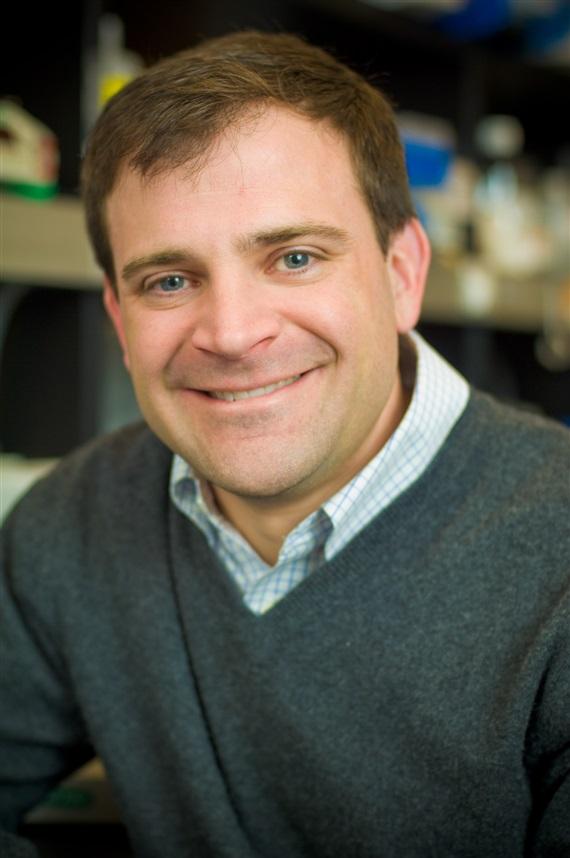Dana-Farber researcher is a new Allen Distinguished Investigator
Weinstock is one of ten new researchers awarded a total of $13.5 million to tackle big questions in biology, medical research
David Weinstock, MD, Physician and Principal Investigator, Dana-Farber Cancer Institute and Associate Professor at Harvard Medical School was named a new Allen Distinguished Investigator. The Allen Institute was founded by philanthropist Paul G. Allen, who passed away Oct. 15 of non-Hodgkin’s lymphoma.
Weinstock, who shares the award with Scott Manalis, Ph.D., of Massachusetts Institute of Technology is studying why some people with lymphoma are cured but others relapse. They aim to tackle the difficult problem of cancer relapse by studying the tiny amounts of lymphoma cells left behind, also known as minimal residual disease, when patients go into remission. By better understanding what makes these few straggler cells resistant to treatment, their project could ultimately identify ways to prevent lymphoma from coming back.
”It is a tremendous honor to be named an Allen Distinguished Investigator. It is particularly poignant because of Mr. Allen’s recent death from lymphoma and I hope our work can serve as part of his remarkable legacy,” said Weinstock.
Three awards, of the nine total, were given to researchers studying lymphoma, a broad class of blood cancers with variable treatment options and prognoses. There have been great advances in developing treatments for some lymphomas, but many patients living with these blood cancers are still in need of better options. The three awards will focus on innovative ideas and new technologies that can catalyze new understanding about lymphoma and spur new treatments.
The nine awards will support 10 investigators from several different research organizations in the U.S., Canada and Portugal. Each award confers $1.5 million in research support over the course of three years, for a total of $13.5 million in funding for studies of lymphoma, neuroscience, the immune system, aging and development, and basic biology. The specific award areas were selected in 2017 through a series of in-depth workshops, guided by Allen and other scientific advisors.
“Paul’s vision and insight have been an inspiration to me and to many others both here at the Institute that bears his name, and in the myriad of other areas that made up the fantastic universe of his interests. He will be sorely missed,” said Allan Jones, Ph.D., President and CEO of the Allen Institute. “We honor his legacy by carrying out our mission of tackling the hard problems in bioscience, as evidenced by these new Allen Distinguished Investigator awards.”
“With this new class of Allen Distinguished Investigators, we are honored to uphold Paul’s vision for accelerating scientific discovery. He was keenly interested in the work of these 10 exemplary researchers and their potential to push the boundaries of knowledge,” said Kathy Richmond, Ph.D., M.B.A., Director of the Frontiers Group. “Our new investigators all think outside the box to tackle big challenges and find new insights about disease and health. Each of them is poised to ‘move the needle’ and drive their fields forward.”
The Allen Distinguished Investigator program began in 2010 to fund early-stage research that is less likely to receive support from traditional funding sources, but which has the potential to significantly advance our understanding of biology. With the 2018 awards, there are a total of 69 Allen Distinguished Investigators appointed since 2010.
For more information on the awards, visit allenfrontiersgroup.org.
Media Contacts
If you are a journalist and have a question about this story, please call 617-632-4090 and ask to speak to a member of the media team, or email media@dfci.harvard.edu.
The Media Team cannot respond to patient inquiries. For more information, please see Contact Us.
